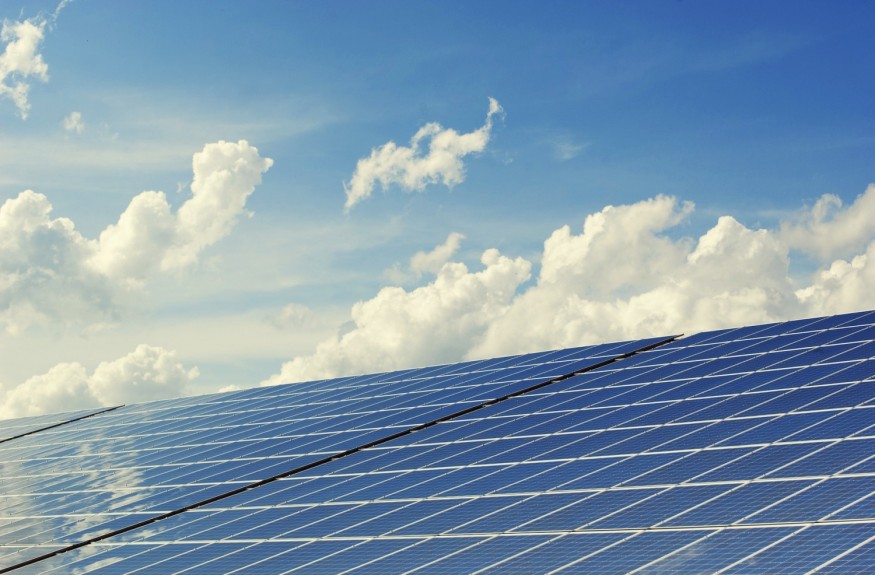
According to a report by the International Energy Agency (IEA), renewable energy sources such as solar, wind and nuclear would meet up to 90% of the world's energy demands by 2025.
The shift is real: more and more energy providers are slowly shifting away from fossil fuels towards renewable energy sources. Reliant Energy, for example, has solar farms to generate energy using solar power. Other companies have taken similar steps to focus on generating electricity from solar, wind and hydrothermal sources.
But why is renewable energy becoming so important?
Global Warming
According to NASA, CO2 levels are at the highest they've been in 2 million years, and the shift towards renewable energy is consistently cited at the top of the list of things we can do to minimize the impact of rising temperatures.
Fossil fuels have been used as an energy source since the start of the Industrial Revolution. These are made of hydrocarbons which when burnt, emit carbon. This carbon bonds with oxygen in the air and forms carbon dioxide, which is a greenhouse gas that traps heat in the atmosphere.
This results in rising temperatures, which further leads to a web of significantly harmful impact, from stronger, more frequent storms, to drought, sea level rise, and extinction.
On the other hand, most renewable energy sources do not result in any carbon emissions, nor do they produce any greenhouse gases. Biomass, which is a renewable energy source, does emit some carbon but this is in significantly smaller quantities than fossil fuels, and is a lot easier to regulate and sustain.
Reducing Pollution
Traditional fossil fuel-based energy sources also cause further harm to the environment due to the emission of pollutants like sulfur dioxide and nitrogen. When these enter the air, they can hold serious consequences for public health, as well as for various ecosystems around the planet. In fact, a majority of global air pollution is caused by the burning of fossil fuels.
Fossil fuel-based power plants also use up large amounts of water to cool the plants. This water then enters rivers and lakes, causing water pollution.
In contrast, renewable energy sources don't emit any of the harmful pollutants while generating power, nor do they require any water in the process. Shifting to renewable energy sources shows promise in terms of reducing air and water pollution.
Improving Energy Access
Renewable energy sources can also increase access to energy, particularly in remote or underdeveloped areas where energy access is limited. Solar and wind power, for example, can be deployed in pretty much any area and help generate clean electricity that can further be used for essential services like healthcare facilities and schools.
This has a significant impact on quality of life, reducing poverty and improving the economy.
Economic Impact
As the costs associated with renewable energy go down, it becomes a lot easier to implement these. In fact, with improving technology, the cost of using renewable energy is decreasing, while the cost of fossil fuels is increasing.
The decreased cost isn't just promising in terms of making energy more accessible, but also helps reduce the costs associated with energy production, and allows for better investments and returns. Since the renewable energy sector is growing, it has also resulted in job creation. As of 2021, the renewable energy sector has about 12.7 million jobs around the world.
Beyond this, renewable energy is also promising in terms of price stability. Since there is a limited amount of fossil fuels available, demand levels will usually dictate prices. As demand rises, the costs of mining for fuels and generating electricity also rise, which results in price hikes.
Renewable energy doesn't come with these fluctuations. There is an infinite amount available, and the operating costs of generating electricity through these sources is very low.
Energy Security
Renewable energy also provides a degree of energy security, which is becoming increasingly important in a world where energy supply is uncertain.
Fossil fuels are a finite resource, with their availability being greatly subject to geopolitical and economic factors. Countries that rely on imported fossil fuels are vulnerable to disruptions in supply and fluctuations in price, which can impact the economy negatively.
On the other hand, renewable energy sources can be used pretty much everywhere, without any need for imports.
On a global level, the reliance on fossil fuels also creates uncertainty in how we'll be able to meet our energy needs once all the available fuels have been depleted. Focusing on renewable energy sources, improving technology and creating more efficient methods of generating electricity can help create security on this front as well.
Resilience
Renewable energy sources are also typically less prone to outages and large-scale failures than fossil fuel systems. These systems are usually decentralized, which means that power is generated from multiple sources and distributed across the grid. As a result, outages in one area will not necessarily result in outages in others.
In 2012, for example, Hurricane Sandy dealt severe damage to fossil fuel systems, resulting in millions of people being left without power. In contrast, the renewable energy projects set up back then were able to withstand the hurricane and power supply was not disrupted. While some equipment was damaged, the rest remained operational, thus continuing to provide energy to consumers.
Despite the growing importance of renewable energy, there are still some challenges that need to be addressed. One of the main challenges of renewable energy sources is their intermittence. Solar and wind, for example, rely greatly on weather conditions, and energy storage is still a question mark.
That said, the importance of renewable energy is undeniable. As research in the field continues, it is very likely that the use of fossil fuels for energy will soon become a thing of the past.
© 2025 NatureWorldNews.com All rights reserved. Do not reproduce without permission.





